A Letter to Prospective Students
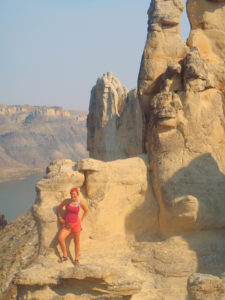 I stood in the waning, golden sunlight of Montana, looking out at the fields that stretched towards Custer National Forest on the horizon. Out there, on the border of the Northern Cheyenne Indian Reservation, I felt a sense of peace, a sweeping openness, that has attracted hunters and ranchers to this place for hundreds of years and explains why this has been a culturally significant area for the Northern Cheyenne tribe for even longer. I imagined all the people, alive and long gone, whose lives are deeply entangled with this place. And it occurred to me, as I listened to a native Northern Cheyenne elder, Steve Brady, tell us the history of his people and the land here, that my life had become part of this place, too. Steve explained that we stood on 1.3 billion tons of coal, a natural aquifer that held water essential to the landscape and its people. This coal, however, along with the landscape above it, is the apple of the eyes of coal companies and railroads, which plan to mine it and ship it around the United States and to Asia. This would mean the ruination of the aquifer, the landscape, and the cultural sacredness of this place. With troubled thoughts, my eyes traveled out again, passing over the glorious but imperiled landscape; I will never forget this place or dismiss its problems as “just a pit somewhere out west.”
I stood in the waning, golden sunlight of Montana, looking out at the fields that stretched towards Custer National Forest on the horizon. Out there, on the border of the Northern Cheyenne Indian Reservation, I felt a sense of peace, a sweeping openness, that has attracted hunters and ranchers to this place for hundreds of years and explains why this has been a culturally significant area for the Northern Cheyenne tribe for even longer. I imagined all the people, alive and long gone, whose lives are deeply entangled with this place. And it occurred to me, as I listened to a native Northern Cheyenne elder, Steve Brady, tell us the history of his people and the land here, that my life had become part of this place, too. Steve explained that we stood on 1.3 billion tons of coal, a natural aquifer that held water essential to the landscape and its people. This coal, however, along with the landscape above it, is the apple of the eyes of coal companies and railroads, which plan to mine it and ship it around the United States and to Asia. This would mean the ruination of the aquifer, the landscape, and the cultural sacredness of this place. With troubled thoughts, my eyes traveled out again, passing over the glorious but imperiled landscape; I will never forget this place or dismiss its problems as “just a pit somewhere out west.”
This was my classroom.
This autumn, I spent a semester away from traditional school, foregoing the comforts of Lawrence University for the wilder country of Montana. With a nonprofit organization called the Wild Rockies Field Institute (WRFI), accredited through the University of Montana-Missoula, I traveled around Montana with six other students, an intern, and two instructors, learning about its environmental, social, and economic atmosphere and problems.
We backpacked and kayaked through wilderness and met with speakers representing an incredibly wide array of perspectives, lifestyles, and occupations. The knowledge, understanding, and feeling of connection I gained from these experiences and meetings will stay with me forever, because I lived them and met people who truly embody the perspectives they stand for. Because of my WRFI experience, I feel well equipped to go into the world, converse with all types of people to tackle environmental—among other—issues, and be an active citizen of the beautiful thing we ultimately call home: the earth.
Each of us college students is encouraged to approach issues from multiple angles. From the analytic and academic perspective, we’ve nailed that. We’re awesome at taking the stance of “devil’s advocate” in the classroom and when we’re having intellectual conversations with friends on our way to lunch at the campus center…but do you ever have that nagging feeling that you’re not speaking from experience, from a deep understanding of the other side? I know I did, which is why, as an environmental studies and geology junkie, I decided to head west to learn about and experience environmental issues firsthand for two months. If only we could all have this kind of experience, we’d rekindle that deep connection to nature that we’re seeking but so often missing. We’d literally walk on the problems—the coal mines, the hydrofracking well sites, the oil refineries—that have forced us to grow up with the black rain cloud of climate change lingering overhead. But we’d also look out over the solutions to those problems: the wind farms, the sustainable ranches, a restored native prairie reserve, the green buildings, and perhaps most importantly, the wilderness. Late at night, we’d stare into the piney embers of our campfire in the wilderness of the mountains while reading and discussing an Aldo Leopold passage on understanding and appreciating the wood we burn.
Maybe that sounds like a fantasy education, a way to dodge rigorous academics. I thought so, too, just a few months ago. But now I’m convinced that the very moment we decide that we don’t have time in our academic career to leap out into the wilderness and find our environmental imaginations again is the moment that we need it most. The second the thought that “I’m a fill-in-the-blank major, so what could an experiential environmental course offer to me?” pops into our mind, we should recognize that the most fulfilling and meaningful experiences are the ones that we live. So find a way to get out into the environment and learn about it through the people who live there and the wisdom of the land. It is our responsibility—and indeed, our most precious opportunity—to read, to listen earnestly, to grapple, to understand, to imagine, to experience the rhythms of the land and its people. What better way could there be to learn about our place in the world and the earth—our ultimate subject—than to experience it intimately?
Go run in the woods.
Sincerely, Catie DeMets
Montana Afoot and Afloat alumnus
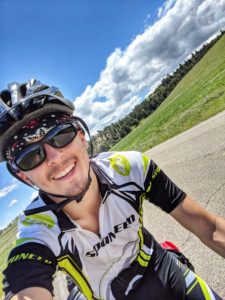
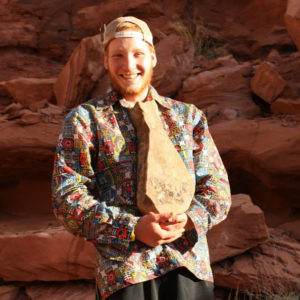
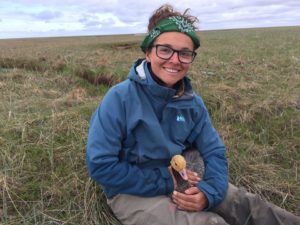
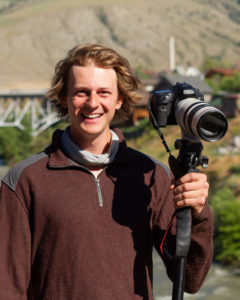
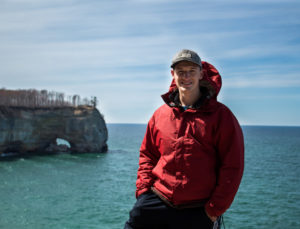
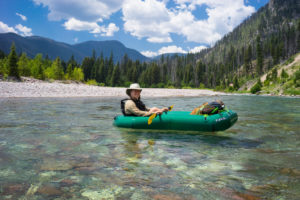 School: University of Montana
School: University of Montana